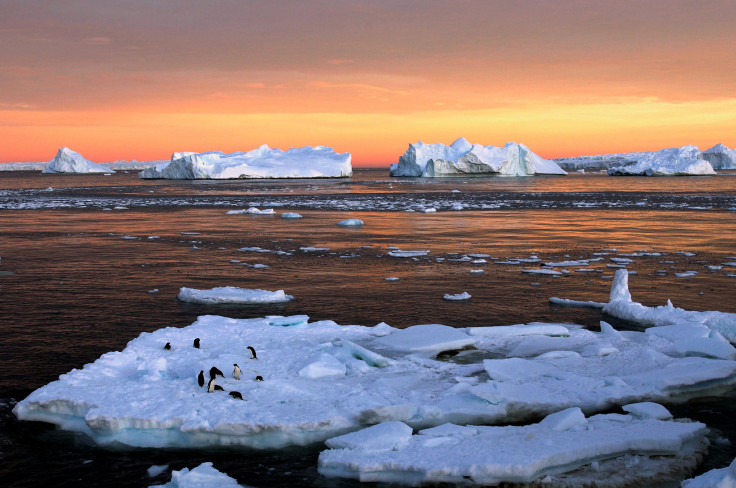Analysis Of Global Warming 'Hiatus' Confirms, Once Again, That Humans Are Driving Climate Change

Several times over the past decade, climate change deniers have pointed to a so-called "hiatus" in global warming between 1998 and 2012 and used it to argue that climate change is a hoax. After all, the existence of a hiatus — or, more accurately, a slowdown in global mean surface temperature over the past 15 years — was acknowledged even by the Intergovernmental Panel on Climate Change in a 2013 report.
How, the deniers questioned, can scientists say human activities are causing the Earth to heat up when the data shows a clear slowdown?
Read: Scientists Observe Climate Change-Driven 'River Piracy'
The answer, according to a new analysis published Thursday in the journal Nature, is that the hiatus can be explained solely in terms of natural short-term variability and incomplete observational coverage. According to the authors of the study, when these factors are taken into account, the hiatus (often erroneously portrayed as a “pause” in global warming by deniers) “is not inconsistent with the understanding of human influence on global climate.”
“Most discrepancies between models and observations can therefore be explained by the state of the natural variability, incomplete or biased forcings, and observational limitations; a complete explanation requires a combination of all of these. When the effects of short-term temperature variations such as the El Niño Southern Oscillation (ENSO), of volcanic aerosols and of solar variability are removed, the anthropogenically forced global warming signal has not decreased substantially,” the researchers wrote in their analysis. “This supports the current scientific understanding that long-term global warming is extremely likely to be of anthropogenic origin.”
For climate scientists, this is all old news. This is why the researchers’ gave more emphasis to the controversy and the debate surrounding the hiatus in their analysis than the hiatus itself.
“The hiatus no doubt was, and still is, an exciting opportunity to learn for many research fields,” the researchers wrote. “Social sciences might find this an interesting period for studying how science interacts with the public, media and policy. In a time coinciding with high-level political negotiations on preventing climate change, skeptical media and politicians were using the apparent lack of warming to downplay the importance of climate change. It is easy to paint a controversial picture, but as often the devil is in the detail.”
The analysis comes at a crucial time. NASA and NOAA estimates show that in 2016, the global average temperature was 1.78 degrees Fahrenheit (0.99 degrees Celsius) warmer than the mid-20th century mean — bringing the planet perilously close to breaching the Paris climate agreement’s perhaps unrealistic target of limiting the rise to 2 degrees Celsius. And 2016, far from being an outlier, was the third straight year to set a record for global average surface temperature.
via GIPHY
Scientists have also voiced concerns over what may be in store for 2017, as U.S. President-elect Donald Trump — who once called climate change a hoax “created by and for the Chinese in order to make U.S. manufacturing non-competitive” — vowed, during his campaign, to “cancel” the historic climate treaty.
“Global warming is happening, it never stopped, it never paused, and the models have gotten it right,” climate scientist John Abraham, who studies ocean temperatures, recently wrote for the Guardian. “Now let’s move on to solving the problem.”
© Copyright IBTimes 2024. All rights reserved.






















